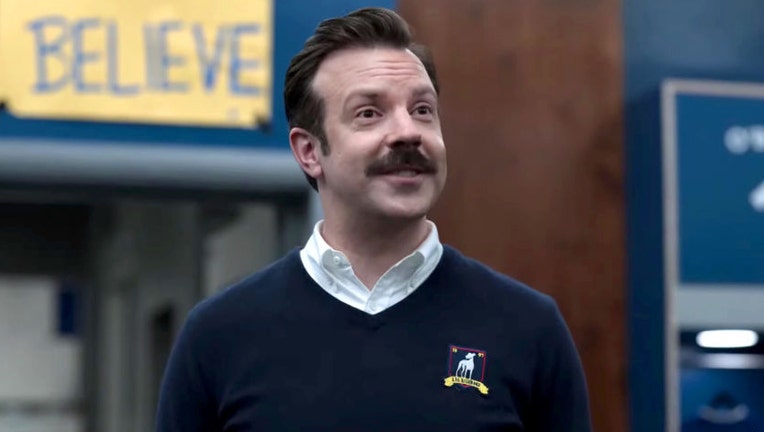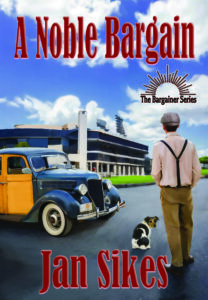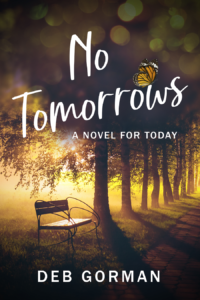Left Coast Crime Report
Terry Odell
 I’m back from Left Coast Crime, and I just know that you’ve all been waiting with bated breath to see how things went on the “Behind the Badge” panel.
I’m back from Left Coast Crime, and I just know that you’ve all been waiting with bated breath to see how things went on the “Behind the Badge” panel.
Even if you’re not, I’m going to tell you anyway.
The four panelists covered a broad range of police stories. We had a time travel book where the cop lived in the past, another protagonist in the present, but they discovered a time portal (by accident) and could communicate with each other. The author’s challenge was getting the police procedures in place in the 1930s right, since the present-day protagonist wasn’t connected to law enforcement.
Another book was set in Pittsburgh, where someone had called in a crime, giving no more information than it was “under a bridge.” Given the city has over 400 bridges, the author had to figure out what the cops would do. (Hint: bridges all have their unique sounds, and they had the recording of the phone call.)
The third panelist’s book was set in Hong Kong in the 1960s, and since he’d lived there, he had a good idea of how things worked. As a reader, I accepted he’d done his homework, since I didn’t have any idea how cops operated in a totally different culture. Lots of corruption going on.
Then there was me, with my current-day, small town police force.
All in all, the moderator did a good job of asking questions that let us talk about the topic while keeping our answers related to our books, since this was a reader’s conference, not one focused on the ins and outs of doing the writing.
Audience questions were also relevant and fun, especially the one about why I set my book in a made up town. My answer was basically, “Because if I set it in a real town, I have to get everything right.” I went on to explain the problems I had writing Nowhere to Hide, which is set in Orlando, where I was living at the time.
But perhaps the best part of the panel for me was when the moderator said he’d read one of my books and was impressed with how I’d nailed the police procedures, and that he thought I’d done a wonderful job with my characterizations and descriptions.
The only panel I attended that was more geared for authors was one on marketing, and how much there is to do, and how much it can cost. I think most of us in the audience were taken aback by the marketing professional who said how much we should be spending on a book launch. (Note: I won’t be spending close to that figure.)
We don’t get into politics here at TKZ, but I’m merely reporting on what happened. There were a lot of apologies given to attendees from Canada.
In presentations given by the Guest of Honor, Sara Paretsky, she said she had almost called to cancel her attendance but decided she had to come, and prayed that there were enough air traffic controllers on the job for her flight. I have to say, she’s pulled me out of my writing slump. She feels as terrible, angry, and scared about the current situation in our country, but she said it’s important for us to keep our voices out there so we’re not giving in. When I finished writing Danger Abroad, (Available for preorder!) I wasn’t sure I could write another book, but now I’m back at the keyboard.
And speaking of being back at the keyboard, I decided the next book would be another Mapleton Mystery, the 10th novel in that series. In getting started, I realized my brain couldn’t handle a months-long hiatus while I was writing Danger Abroad, which is a Blackthorne, Inc. novel. When I started writing the new book, it took almost a full page before I realized that I was writing from Angie’s POV, not Gordon’s. Had to fix it. Luckily, it was only one page that needed fixing, and I’m an author. I know how to do that.
OK, TKZers. The floor is yours.
New! Find me at Substack with Writings and Wanderings
When breaking family ties is the only option.
Madison Westfield has information that could short-circuit her politician father’s campaign for governor. But he’s family. Although he was a father more in word than deed, she changes her identity and leaves the country rather than blow the whistle.
Blackthorne, Inc. taps Security and Investigations staffer, Logan Bolt, to track down Madison Westfield. When he finds her in the Faroe Islands, her story doesn’t match the one her father told Blackthorne. The investigation assignment quickly switches to personal protection for Madison.
Soon, they’re involved with a drug ring and a kidnapping attempt. Will working together put them in more danger? Can a budding relationship survive the dangers they encounter?
 Like bang for your buck? I have a new Mapleton Bundle. Books 4, 5, and 6 for one low price.
Like bang for your buck? I have a new Mapleton Bundle. Books 4, 5, and 6 for one low price.
 Terry Odell is an award-winning author of Mystery and Romantic Suspense, although she prefers to think of them all as “Mysteries with Relationships.”
Terry Odell is an award-winning author of Mystery and Romantic Suspense, although she prefers to think of them all as “Mysteries with Relationships.”



 The Femme Fatale– In the Bible,
The Femme Fatale– In the Bible,
 For a fresh take on a psychopath, I recommend the 2019 novel
For a fresh take on a psychopath, I recommend the 2019 novel 


 Coming Soon!
Coming Soon! 






 Jan Sikes is a multi-award-winning author, who writes compelling and creative stories from the heart.
Jan Sikes is a multi-award-winning author, who writes compelling and creative stories from the heart.










